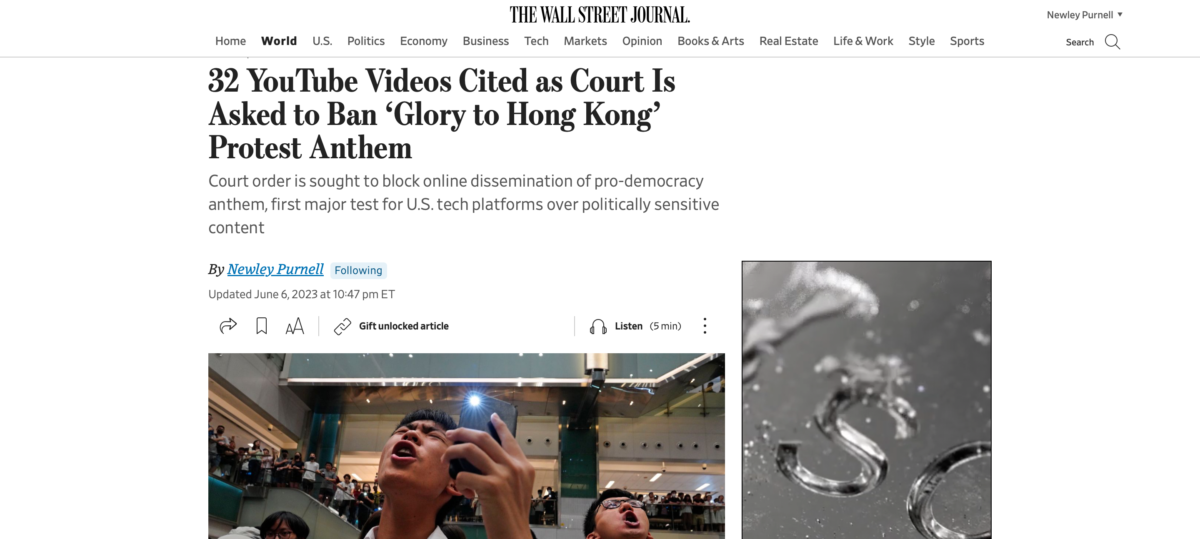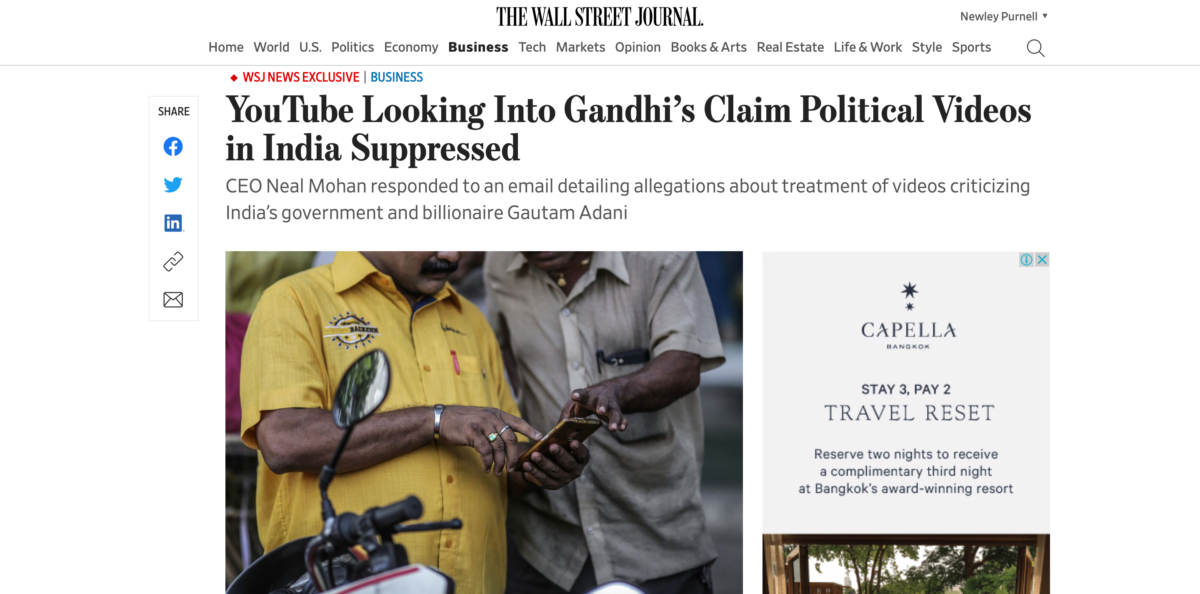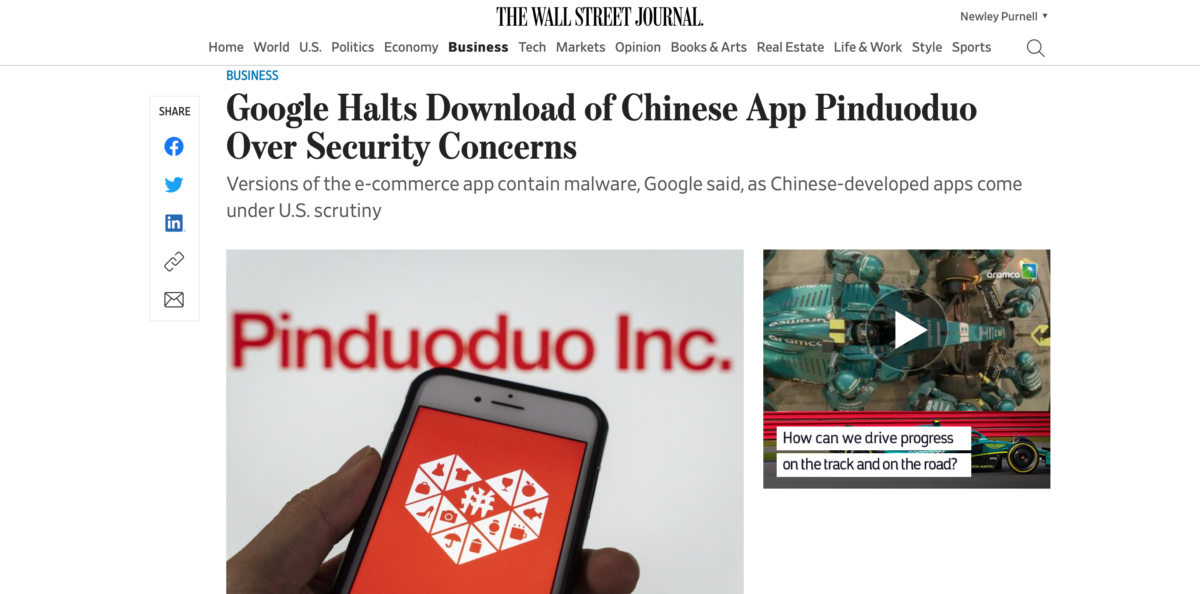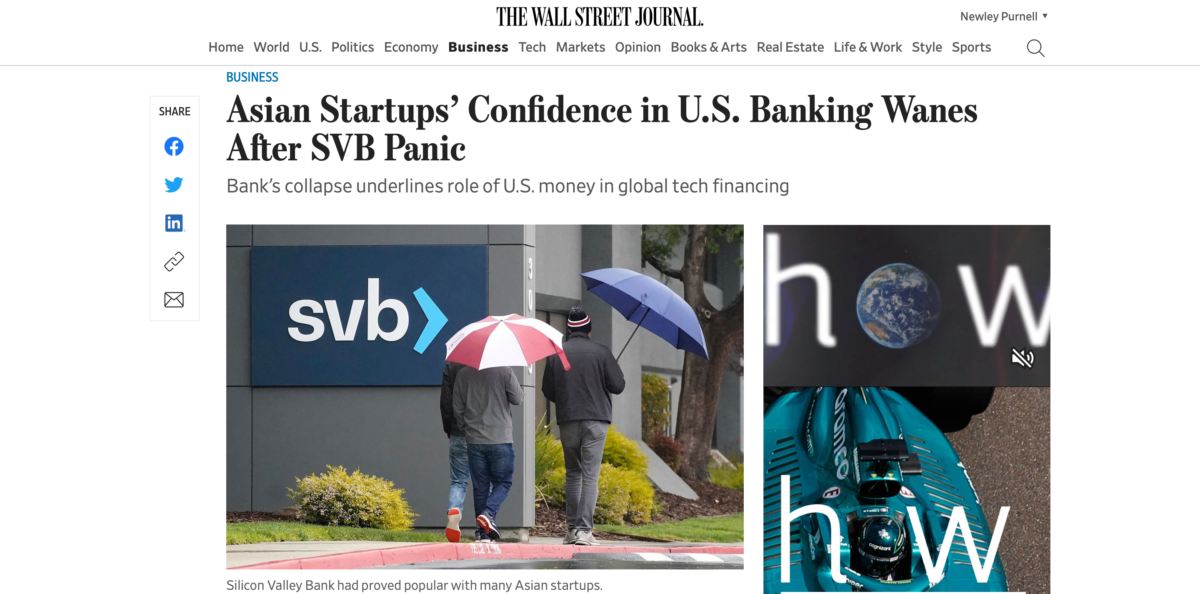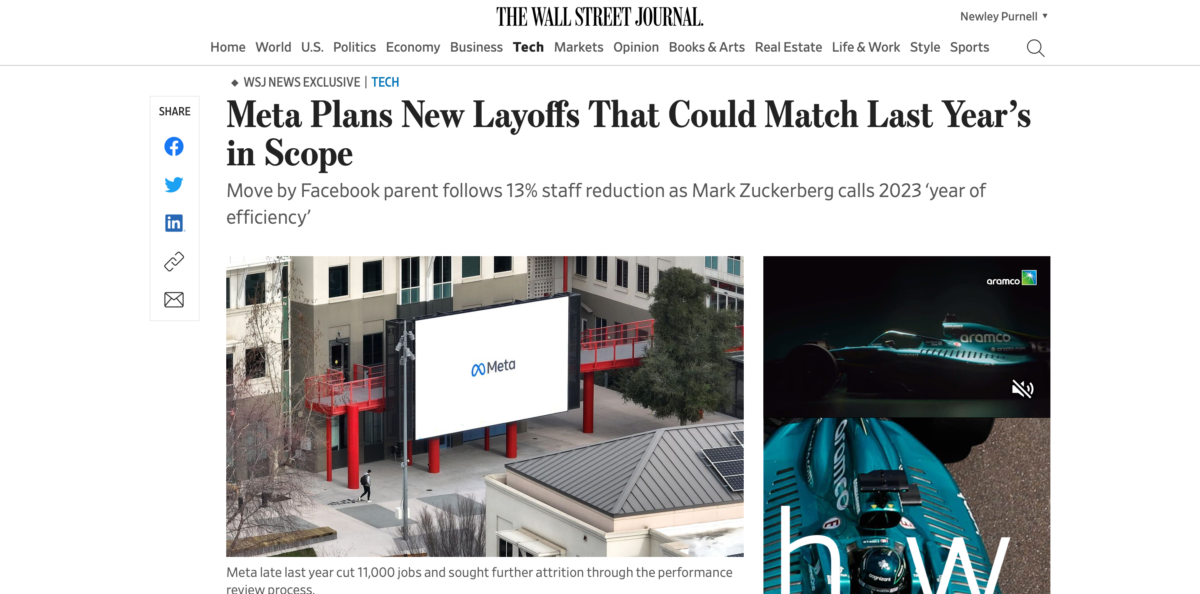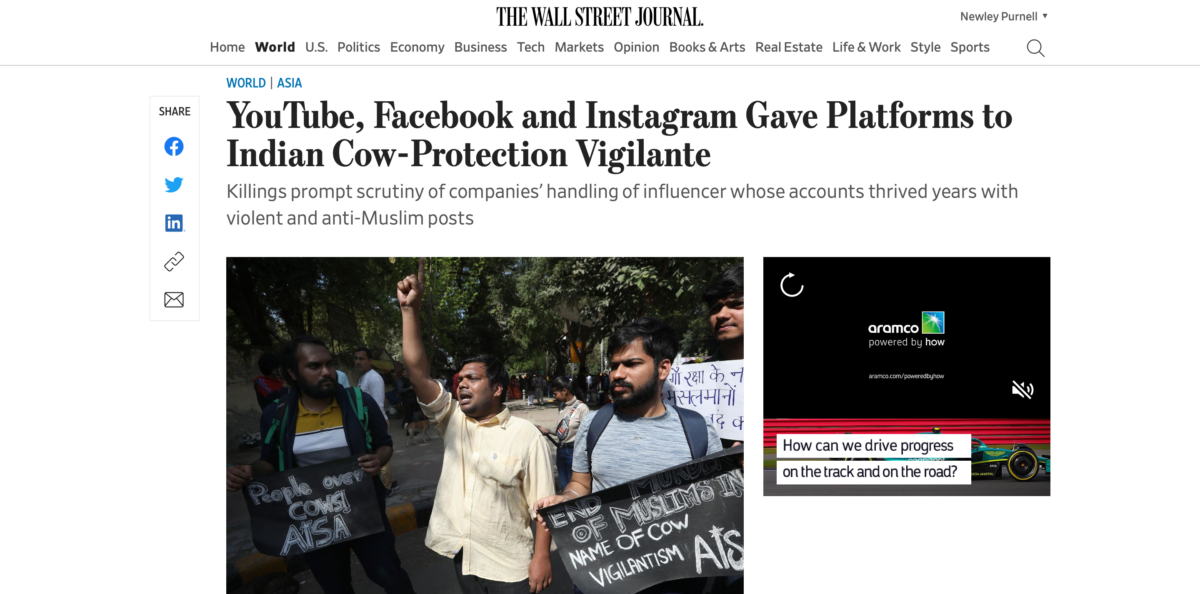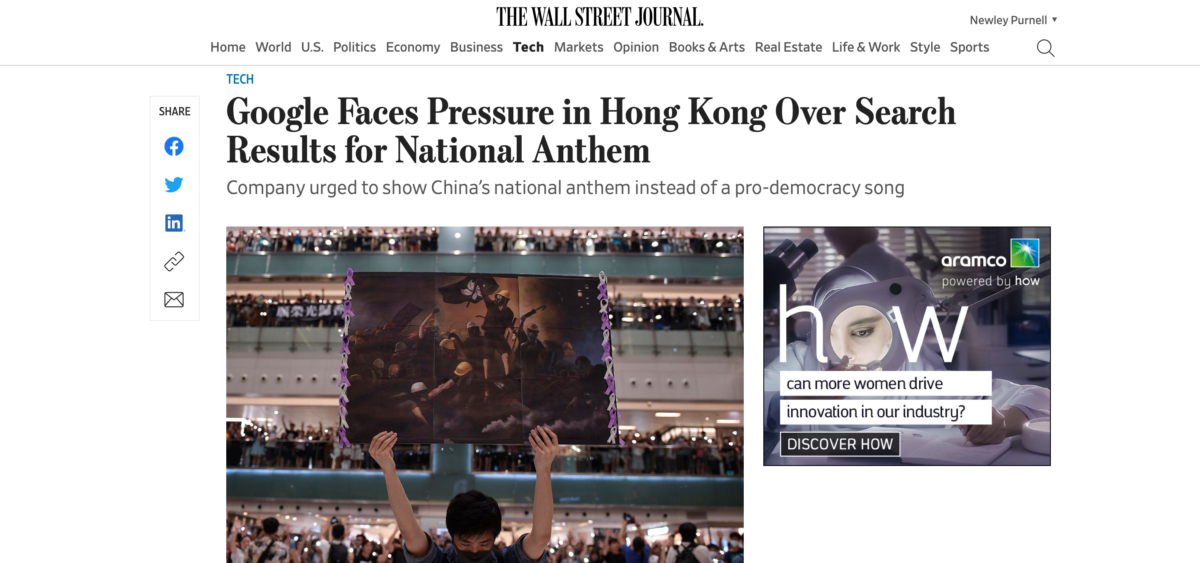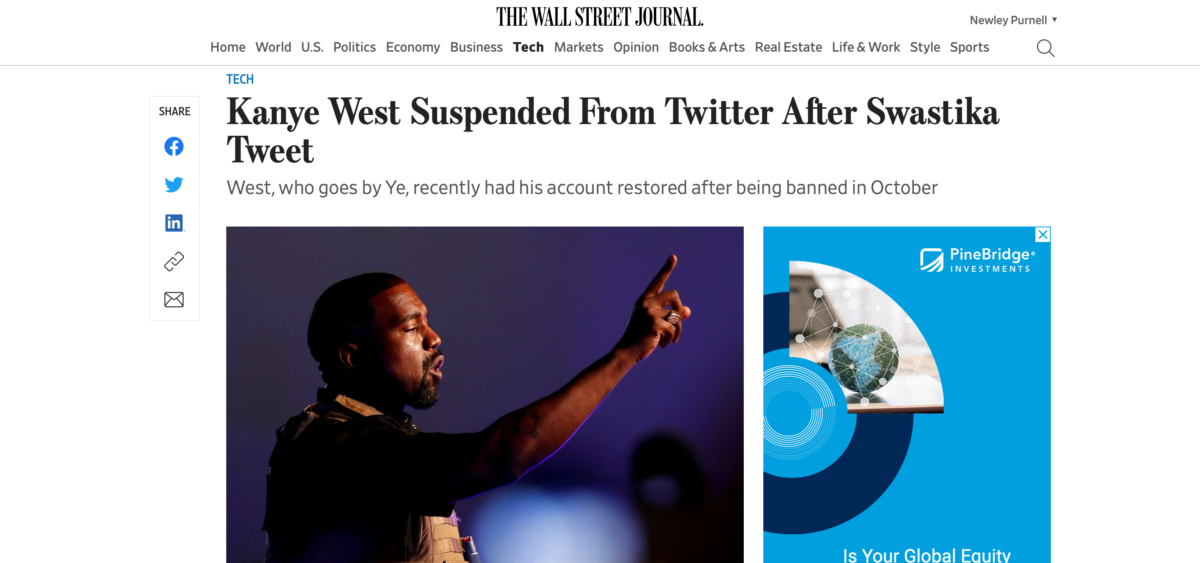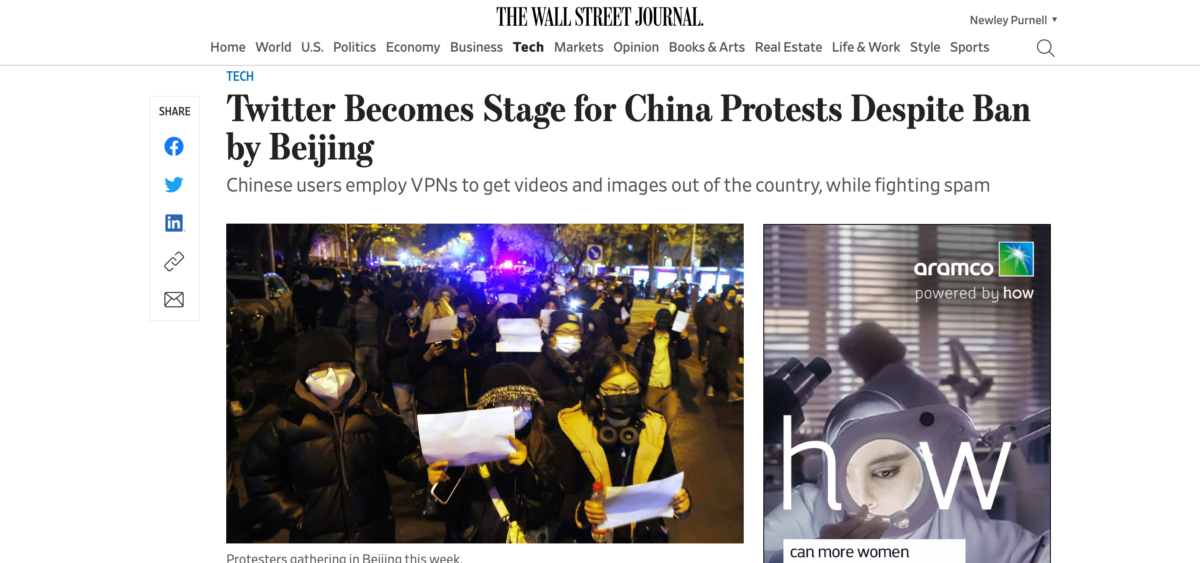That was the headline on a story that ran earlier this month. (I’m late in posting it here.)
It began:
HONG KONG—Government officials in the financial center are seeking a court order to block the dissemination online of a popular pro-democracy song, the first major legal challenge to U.S. tech companies such as Google over politically sensitive content on their platforms.
The Department of Justice applied to the city’s High Court for an injunction banning the broadcasting or distribution—including on the internet and any media accessible online—of the song “Glory to Hong Kong,” the government said Tuesday. The date for a court hearing hasn’t been set.
While the legal action doesn’t name any specific companies, Google has been swept up in a controversy over the song as authorities move to stifle dissent using a national security law imposed by China in the city almost three years ago. The government’s application for the court order includes links to 32 videos on Google’s YouTube related to the song.
